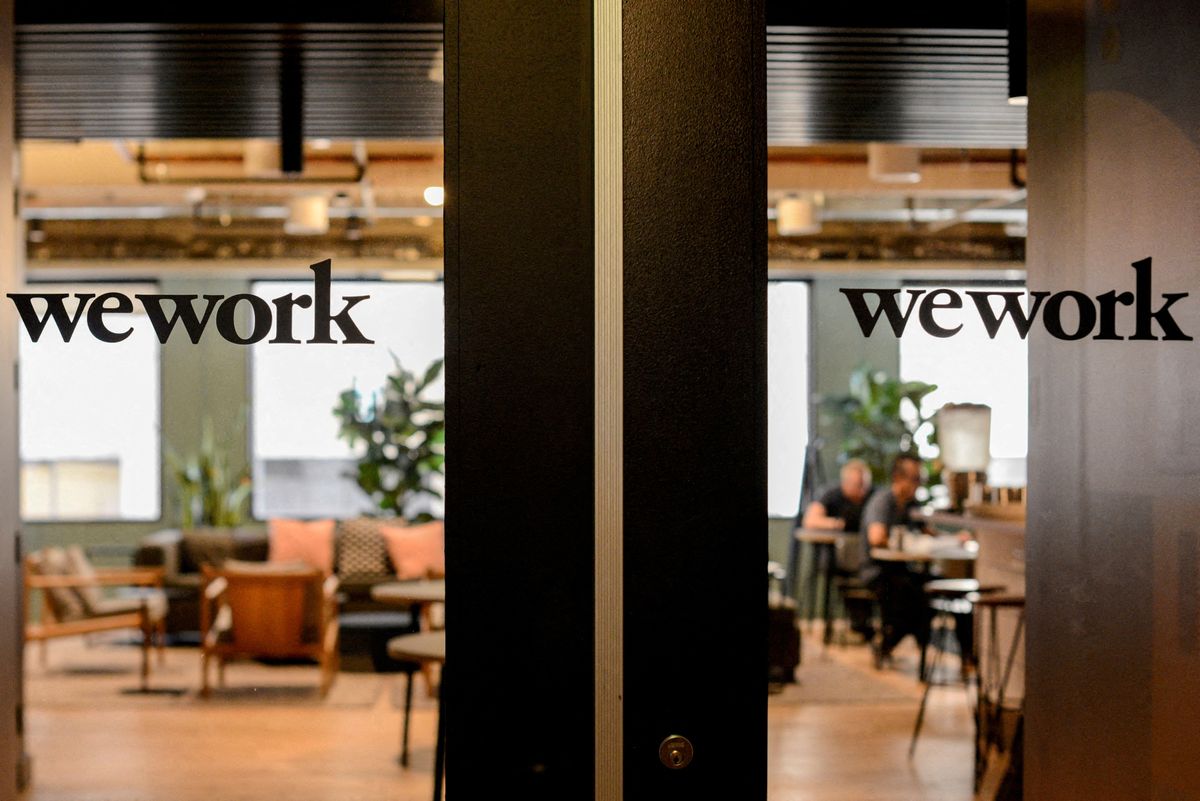WeWork's CEO announces lease restructuring strategy
WeWork's CEO said in a public letter that the company is talking to its landlords about reworking almost all its leases.

A few minutes every morning is all you need.
Stay up to date on the world's Headlines and Human Stories. It's fun, it's factual, it's fluff-free.
The backstory: WeWork is a major player in the flexible office space game. Essentially, the company takes out long-term leases on office spaces and then rents those out to businesses in flexible arrangements, like co-working spaces, private offices and more. It used to be a big name in this industry, offering workspaces that adapted to individual needs. But then, 2019 hit the company like a ton of bricks. Its big initial public offering (IPO) plans crumbled due to financial worries and some serious questions about how it was being run. On top of that, the COVID pandemic hit, and the demand for office spaces plummeted. WeWork found itself stuck with empty buildings worth far less than what it paid for them.
SoftBank had been a big backer of the company, investing a total of US$18.5 billion in the start-up leading up to its failed IPO. But its valuation progressively dropped, from US$7.3 billion at the end of December 2019 to US$2.9 billion in early 2020. Even Masayoshi Son, SoftBank’s CEO, later said that investing in WeWork was “foolish.”
More recently: Sandeep Mathrani joined the company in 2020 as CEO. During his tenure, he worked to make progress through different strategies, including a cost-cutting spree, lease makeovers, revenue boost and fundraising to recover from the COVID slump. In May, WeWork got a new CEO, David Tolley, who would be taking over for Mathrani.
About a month ago, WeWork said in a filing that bankruptcy is on the table. Its market value has dropped from US$47 billion to about US$260 million. To stay on the New York Stock Exchange, the company pulled a move with a 1-for-40 reverse stock split (which basically consolidates the number of existing shares into fewer shares at a higher price) to boost its share price. The company’s cash reserves were reduced to US$205 million in June, down from US$625 million in mid-2022.
The development: WeWork's CEO Tolley said in a public letter published on its website that the company is talking to its landlords about reworking almost all its leases and potentially saying goodbye to locations that aren't performing so well.
Tolley made it clear that WeWork is in it for the long haul. He's on a mission to revamp leases on a global scale, reassuring that they'll stick around in most of their buildings and markets. Plus, the company pledges to keep members in the loop and provide alternatives if it does decide to close locations. But it seems like the market isn't entirely buying into it. WeWork's stock took a hit, dropping over 7% the day after this announcement.
Key comments:
"Today, we are kicking off a process of global engagement with our landlords to renegotiate nearly all our leases," said WeWork CEO David Tolley. "As part of these negotiations, we expect to exit unfit and underperforming locations and to reinvest in our strongest assets as we continuously improve our product."
“We intend to remain in the majority of our buildings and markets,” said Tolley. “As when we’ve closed locations in the past, we will promptly inform members and offer alternative arrangements and additional support to minimize any disruption or inconvenience.”
"Fewer and fewer companies from mature large-cap businesses to startups are willing to enter into long-term leases for geographically fixed spaces," said Tolley on an analyst call last month.
“We made a failure on investing in WeWork and I’ve been admitting that several times I was foolish,” said SoftBank CEO Masayoshi Son on an earnings call.




Comments ()